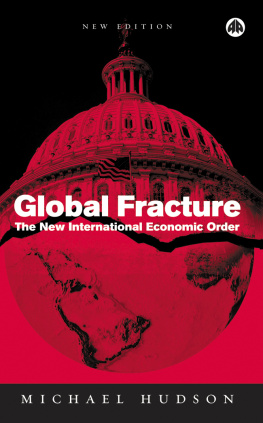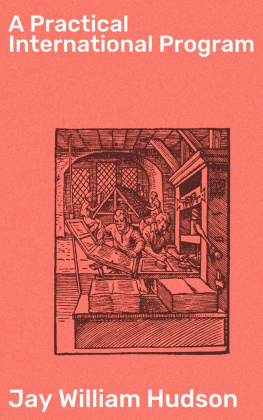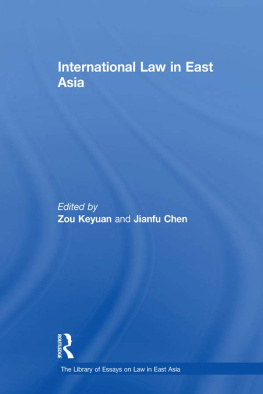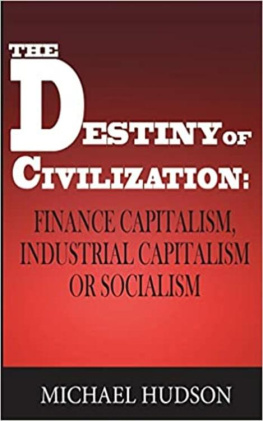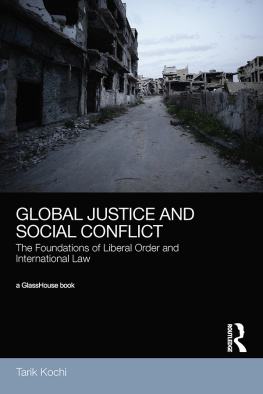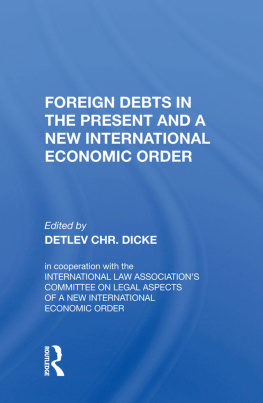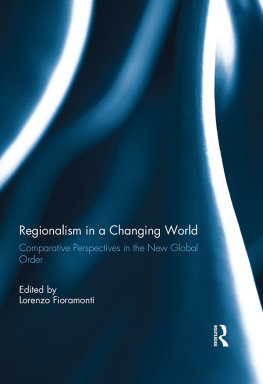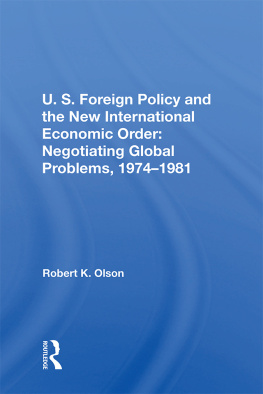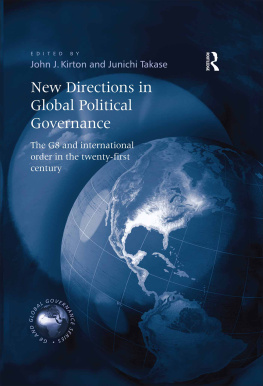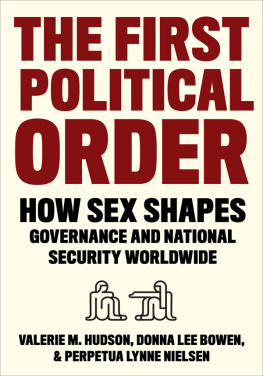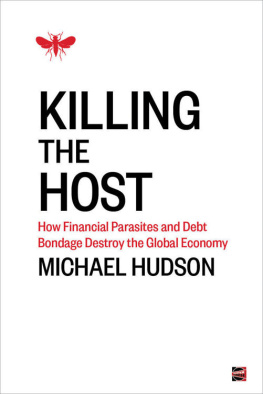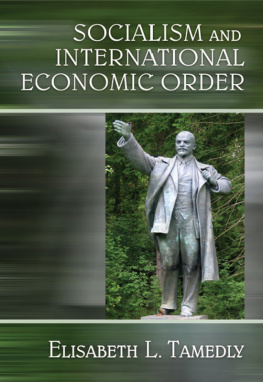Hudson - Global fracture: the new international economic order
Here you can read online Hudson - Global fracture: the new international economic order full text of the book (entire story) in english for free. Download pdf and epub, get meaning, cover and reviews about this ebook. publisher: Book Network Intl Limited trading as NBN International (NBNi), genre: Politics. Description of the work, (preface) as well as reviews are available. Best literature library LitArk.com created for fans of good reading and offers a wide selection of genres:
Romance novel
Science fiction
Adventure
Detective
Science
History
Home and family
Prose
Art
Politics
Computer
Non-fiction
Religion
Business
Children
Humor
Choose a favorite category and find really read worthwhile books. Enjoy immersion in the world of imagination, feel the emotions of the characters or learn something new for yourself, make an fascinating discovery.
Global fracture: the new international economic order: summary, description and annotation
We offer to read an annotation, description, summary or preface (depends on what the author of the book "Global fracture: the new international economic order" wrote himself). If you haven't found the necessary information about the book — write in the comments, we will try to find it.
Hudson: author's other books
Who wrote Global fracture: the new international economic order? Find out the surname, the name of the author of the book and a list of all author's works by series.
Global fracture: the new international economic order — read online for free the complete book (whole text) full work
Below is the text of the book, divided by pages. System saving the place of the last page read, allows you to conveniently read the book "Global fracture: the new international economic order" online for free, without having to search again every time where you left off. Put a bookmark, and you can go to the page where you finished reading at any time.
Font size:
Interval:
Bookmark:

Global
Fracture
Global
Fracture
The New International
Economic Order
New Edition
Michael Hudson

First published in 1977 by HarperCollins Publishers
This new edition first published 2005 by Pluto Press
345 Archway Road. London N6 5AA
and 839 Greene Street. Ann Arbor, MI 48106
www.plutobooks.com
Copyright Michael Hudson, 1977. 2005
The right of Michael Hudson to be identified as the author of this work has been asserted by him in accordance with the Copyright, Designs and Patents Act 1988.
British Library Cataloguing in Publication Data
A catalogue record for this book is available from the British Library
ISBN 0 7453 2395 2 hardback
ISBN 0 7453 2394 4 paperback
ISBN 9781783719075 ePub
ISBN 9781783719082 Kindle
Library of Congress Cataloging in Publication Data applied for
10 9 8 7 6 5 4 3 2 1
Produced for Pluto Press by
Chase Publishing Services, Fortescue, Sidmouth, EX 10 9QG, England Printed and bound in Canada by Transcontinental Printing
Contents
Preface
This book is a successor to Super Imperialism: The Economic Strategy of American Empire (1972), which analyzed the evolving methods by which the United States has dominated its Free World allies economically, politically and militarily. As the Cold War pushed Americas balance of payments into massive deficit, forced it off gold, and indebted it to foreign governments beyond its willingness to repay, the United States enacted increasingly protectionist trade and investment policies while continuing to inflate the world economy with excess dollars. These tactics finally led other industrial nations and Third World countries to press for a new international economic order. Europes closing of its foreign exchange markets in 1973, its repudiation of Kissingers proposed New Atlantic Charter, the Middle East War and the subsequent quadrupling of oil prices, followed by foreign moves to achieve economic self-sufficiency in place of their previous dependency, all represent attempts to break Americas hold on the world economy. A North-South conflict has been superimposed on the growing tensions among the leading industrial nations. Europe, Japan and America, each in their own way, are jockeying for position vis--vis each other and the newly self-assertive Third World. The resulting diplomacy reflects new values and implies new seats of economic power, characterized by regional alliances that may leave the United States isolated within its own hemisphere.
Whatever the resolution of the forces that have recently been set in motion, they connote an ending of the postwar world order that enabled the United States to tap foreign wealth with almost no constraint. For better or worse America is finding itself thrown back upon its own relatively high-cost resources in the face of inadequate domestic savings and reduced ability to secure from abroad the wealth it is no longer producing at home. The present book describes the principles underlying this global fracture and outlines its most probable economic and political consequences.
Introduction to the New Edition
Global Fracture (1977), the sequel to Super Imperialism (1972), describes how debtor countries and raw-materials exporters sought to create a New International Economic Order (NIEO) in the 1970s. A program more of nationalist regimes than of the political left, the NIEO advocated a non-Communist New Deal to improve the terms of trade for raw materials and build up agricultural and industrial self-sufficiency so as to avoid trade dependency and the foreign debt trap.
This program today has become a forgotten interlude. Its optimism has been replaced by the financial austerity and privatizations imposed by the World Bank and International Monetary Fund (IMF) since the 1980s, after Margaret Thatcher was elected Prime Minister of Britain in 1979 and Ronald Reagan won the American presidential election a year later. Over the past two decades foreign countries have been stripped of the public enterprise whose development had been a central plank of the NIEO. Rather than seeking an alternative to the Washington Consensus and its U.S.-centered pattern of global development, even Europe has embraced a monetarist austerity hitherto adopted only by hapless debtor countries.
The term Washington Consensus was coined in 1989 by a World Bank economist, John Williams, to signify Americas policy response to the collapse in the prices of Third World bonds and bank loans after Mexicos default in 1982 triggered the Latin American debt bomb. The hallmark of this neoliberal (that is, pro-creditor and pro-monopoly) program was a monetary drain that has obliged debtor countries to sell off their public domain on credit to insiders (crony capitalism) and foreign buyers, while freeing capital flows, that is, permitting capital flight without limit. As one economic reporter recently observed in the Financial Times: Mixed with mismanagement and corrupt governance, the Washington Consensus managed to undermine a dozen economies in a decade. Countries like Argentina and Indonesia found that the speed and greed of modern finance was a pipeline for every sort of instability.
Already in the 1970s American diplomats sought to impose a division of labor in which other countries were to import U.S. high-technology, high-wage and high-profit goods and services in exchange for raw materials and consumer goods made with low-wage labor, and to become dependent on American farm surpluses rather than feeding themselves.
The 1980s saw the World Bank and IMF use their creditor leverage to impose an era of privatization that dismantled and sold off public enterprises and social infrastructure, leaving economies much further indebted and more foreign-owned than anyone imagined in the 1970s. Soviet Communism was vanquished with the accession of Boris Yeltsin in Russia in 1991. Countries not obeying the Washington Consensus faced the prospect of being isolated as international pariahs, subject to sanctions such as those imposed on Cuba, Libya and North Korea. Meanwhile, the United States has retained its agricultural and industrial protectionism but opposed such policies abroad. This double standard has thwarted the drive by other countries to achieve their own national self-determination in industry, agriculture and trade.
No General de Gaulle or comparable European or Third World leader emerged to challenge the U.S.-centered global order. Labour Parties in New Zealand, Australia and Britain (and most recently Brazil under Lula) have imposed neoliberal policies that no non-labor government could have enforced without being thrown out of office. (What are labor parties for in todays world, after all, if not to betray their constituencies?) Even Russia was persuaded to adopt the Washington Consensus by the mid-1990s, dollarizing its economy as its central bank followed IMF dictates and refrained from paying public employees. Only the United States has inflated its economy by running twin government budget deficits and balance-of-payments deficits, obtaining a free ride beyond the expectations of anyone in the 1970s.
Nobody had speculated on what it would mean for other countries not to promote a more equitable and symmetrical alternative to the American-centered order, or what it would mean specifically for economies to recycle their foreign-exchange earnings to finance the U.S. Governments federal budget deficit, as much of Asia and Europe have done. The natural expectation is that a nation cannot get something for nothing, as the exploited parties will soon catch onto the game. But as the modern science of advertising has demonstrated, people can be convinced that what is bad for them actually is good. It is all a question of how to frame their decision-making process.
Font size:
Interval:
Bookmark:
Similar books «Global fracture: the new international economic order»
Look at similar books to Global fracture: the new international economic order. We have selected literature similar in name and meaning in the hope of providing readers with more options to find new, interesting, not yet read works.
Discussion, reviews of the book Global fracture: the new international economic order and just readers' own opinions. Leave your comments, write what you think about the work, its meaning or the main characters. Specify what exactly you liked and what you didn't like, and why you think so.

